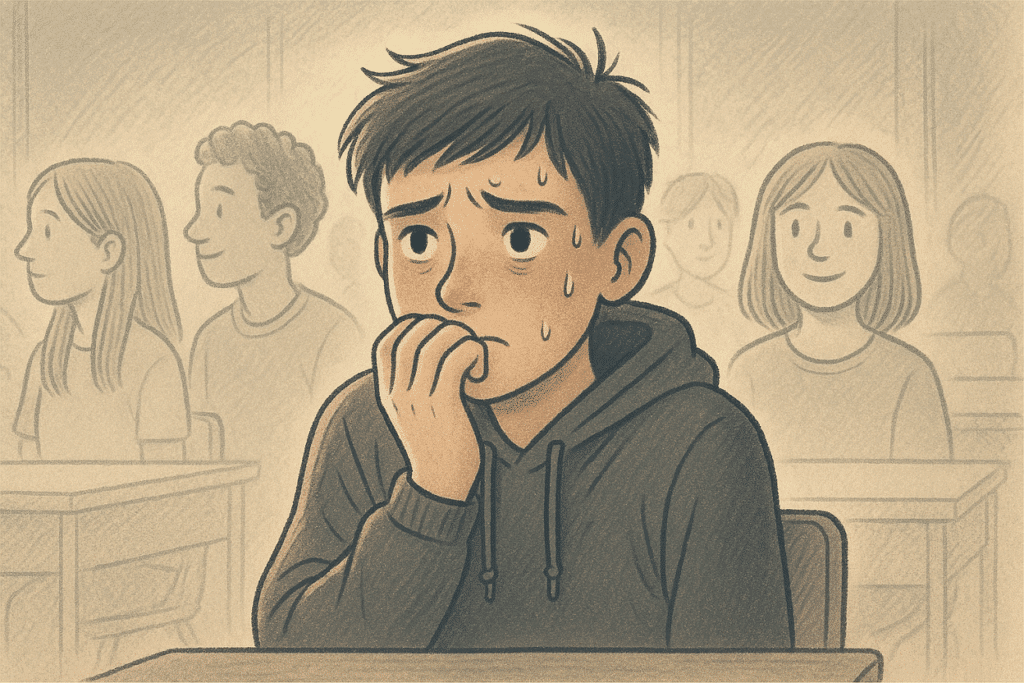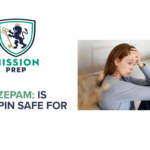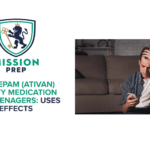Key Takeaways
- Social anxiety affects approximately 9.1% of adolescents, with symptoms that can significantly impact their academic performance, relationships, and overall well-being.
- Cognitive-behavioral therapy (CBT) is highly effective for treating teen social anxiety, with success rates of 60-80% when completed with a qualified therapist.
- Having a supportive home environment helps teens feel secure enough to face their anxiety.
- Teens who receive proper support for social anxiety show better outcomes and reduced risk of developing additional mental health concerns.
- At Mission Prep Healthcare, we combine evidence-based professional therapy with consistent family support customized to each teen’s unique needs, leading to improvements in social anxiety symptoms.
Teen Social Anxiety Signs
Social anxiety manifests differently in each teen, but understanding the common symptoms can help you identify when your child might need support. Unlike typical teenage awkwardness, social anxiety persists over time and significantly impacts daily functioning.
Physical Symptoms
Teens with social anxiety often experience pronounced physical reactions when faced with social situations. They might often complain about stomach aches, headaches, or feel dizzy before school or social events. These aren’t just excuses; their bodies are responding to perceived threats with genuine physical symptoms.
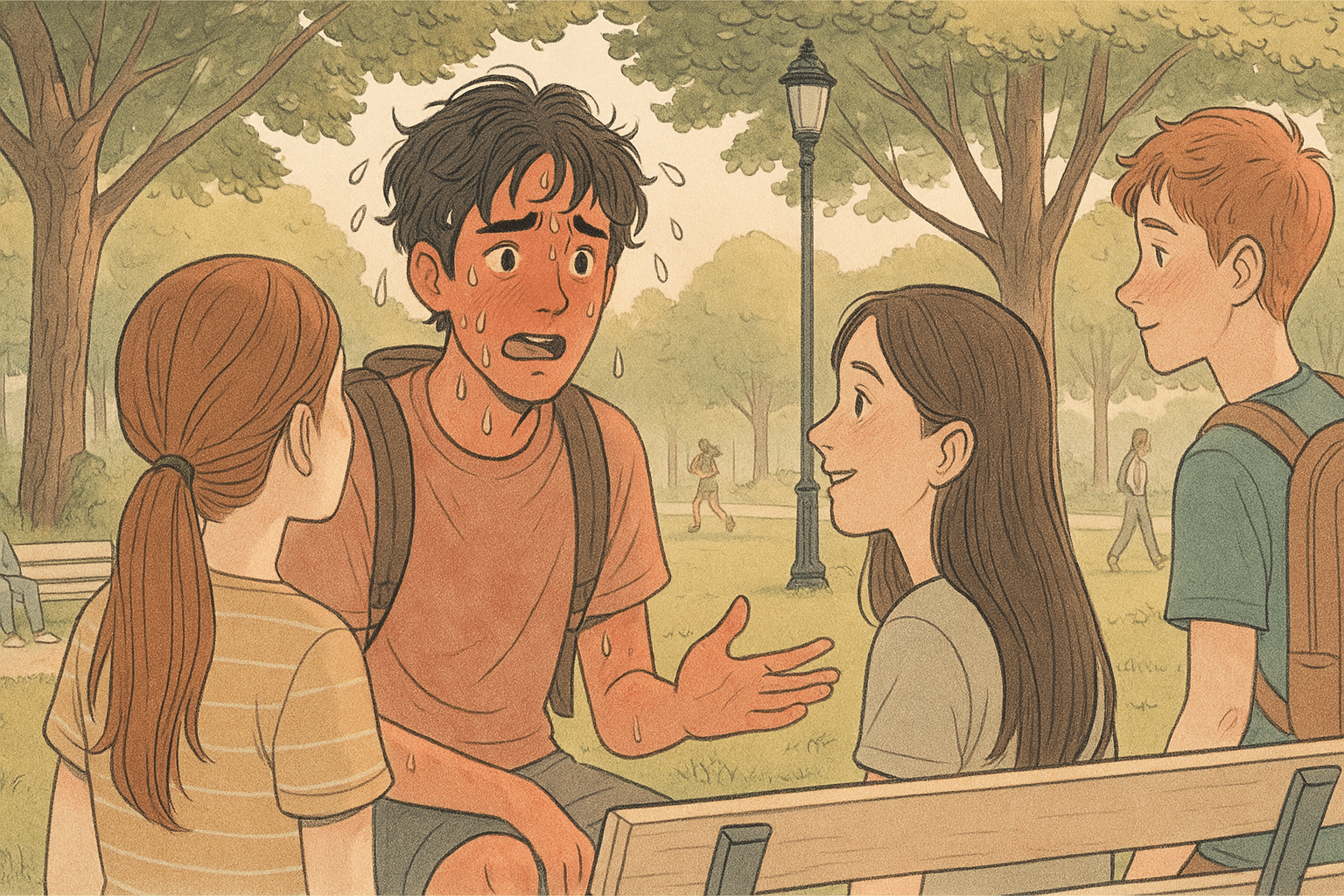
Watch for visible signs like blushing, sweating, trembling, or a quavering voice during social interactions.
Some teens report feeling their heart racing or experiencing shortness of breath that can resemble panic attacks. These physical manifestations can be especially distressing because they’re visible to others, creating a cycle where teens become anxious about their anxiety symptoms being noticed.
Behavioral Changes
Many teens with social anxiety will go to great lengths to avoid situations where they might be the center of attention. Some teens develop safety behaviors, like constantly checking their phone or only attending events with a trusted friend to manage their anxiety.
While these strategies provide temporary relief, they actually reinforce anxiety in the long run.
Academic Impact
Social anxiety can significantly affect school performance in ways that aren’t always obvious. They might avoid asking questions in class, skip school on days with presentations, or struggle with group projects.
At Mission Prep Healthcare, we frequently see bright students whose grades don’t reflect their capabilities because their anxiety interferes with their ability to fully participate in the learning environment.
Mission Prep Healthcare specializes in mental health treatment for teens aged 12-17, offering residential and outpatient programs for anxiety, depression, trauma, and mood disorders. Our therapies include CBT, DBT, EMDR, and TMS, tailored to each adolescent’s needs.
With a structured, supportive environment, we integrate academic support and family involvement to promote lasting recovery. Our goal is to help teens build resilience and regain confidence in their future.
Daily Coping Techniques for Teens with Anxiety
Breathing Exercises
Controlled breathing techniques help counter the shallow, rapid breathing pattern that often accompanies anxiety. A basic exercise we recommend is the 4-7-8 technique: inhale for 4 counts, hold for 7 counts, and exhale for 8 counts.
This extended exhale naturally slows the heart rate and can quickly reduce anxiety in stressful situations. Teens can practice this technique discreetly, making it particularly valuable for managing anxiety at school or in other social settings.
Mindfulness Practice
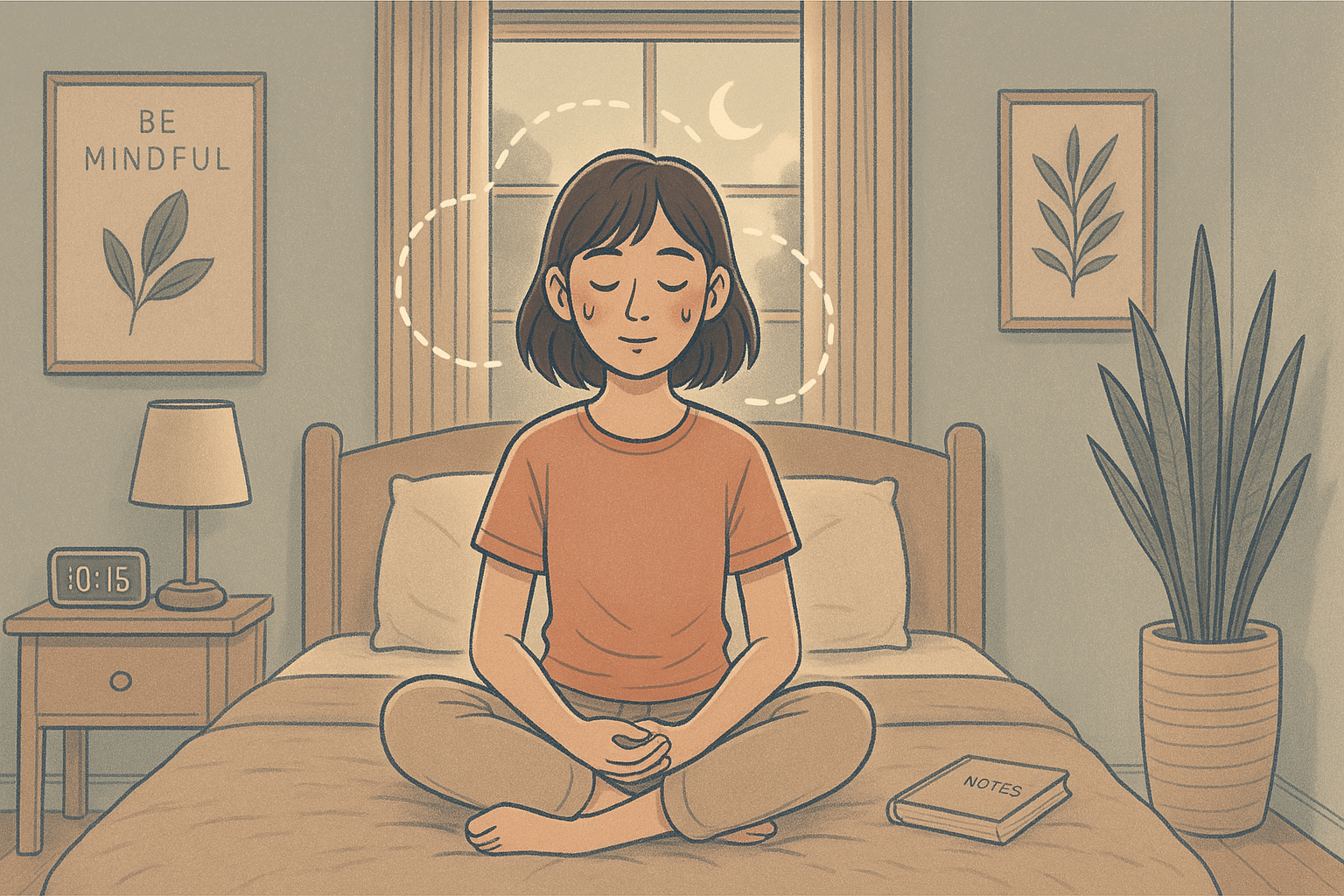
Mindfulness helps teens break the cycle of anxious rumination by focusing attention on the present moment without judgment.
Regular mindfulness practice strengthens your teenager’s ability to notice anxious thoughts without becoming caught up in them. Simple mindfulness activities include the 5-4-3-2-1 grounding technique, which involves identifying 5 things they can see, 4 things they can touch, 3 things they can hear, 2 things they can smell, and 1 thing they can taste.
Consistent mindfulness practice actually changes brain activity in regions associated with anxiety, making it a powerful complement to other treatment approaches.
Physical Activity
Regular exercise is one of the most effective natural anxiety remedies available. Physical activity releases endorphins, improves sleep quality, and reduces muscle tension, all of which help manage anxiety symptoms.
For teens with social anxiety, individual activities like running, swimming, or yoga may feel most comfortable initially, though team sports can provide valuable exposure to social situations in a structured environment.
Sleep Importance
Inadequate sleep significantly worsens anxiety symptoms and reduces coping abilities. Many teens with social anxiety develop poor sleep habits, either from anxiety-related insomnia or from general teen tendencies toward late bedtimes.
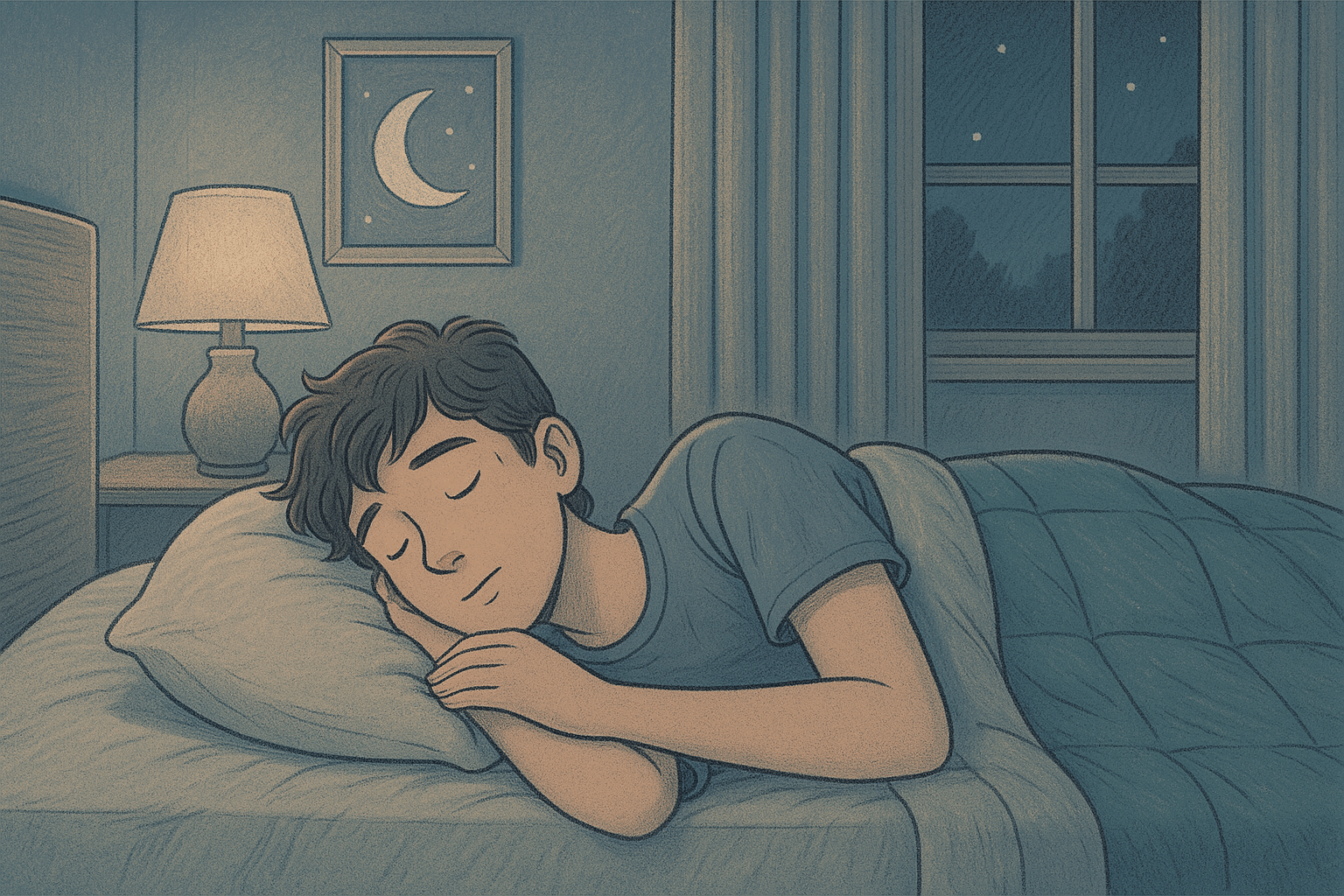
Establishing healthy sleep routines is an essential component of anxiety management.
We recommend creating a calming bedtime routine that starts 30–60 minutes before the target sleep time. This routine should include dimming lights, avoiding screens (which emit sleep-disrupting blue light), and engaging in relaxing activities like reading or gentle stretching. Teens should aim for 8–10 hours of sleep each night, maintaining consistent sleep and wake times even on weekends when possible.
Therapy Options for Teen Anxiety
Cognitive Behavioral Therapy
Cognitive Behavioral Therapy (CBT) stands as the gold standard treatment for social anxiety in adolescents, with extensive research supporting its effectiveness.
CBT works by helping teens recognize the connection between their thoughts, feelings, and behaviors. They will learn to identify automatic negative thoughts that trigger anxiety in social situations—thoughts like “Everyone will think I’m stupid if I speak up” or “I’ll definitely embarrass myself.”
Through guided exercises, they’ll evaluate the evidence for these thoughts and develop more balanced perspectives.
Exposure Therapy
Exposure therapy, a component of CBT, directly addresses avoidance behaviors that maintain social anxiety. By gradually facing feared situations in a controlled, supportive environment, teens learn that their anxiety naturally decreases over time. This process, called habituation, is powerful in breaking the cycle of avoidance that keeps social anxiety in place.
Effective exposure therapy follows a gradual, systematic approach rather than pushing teens into overwhelming situations.
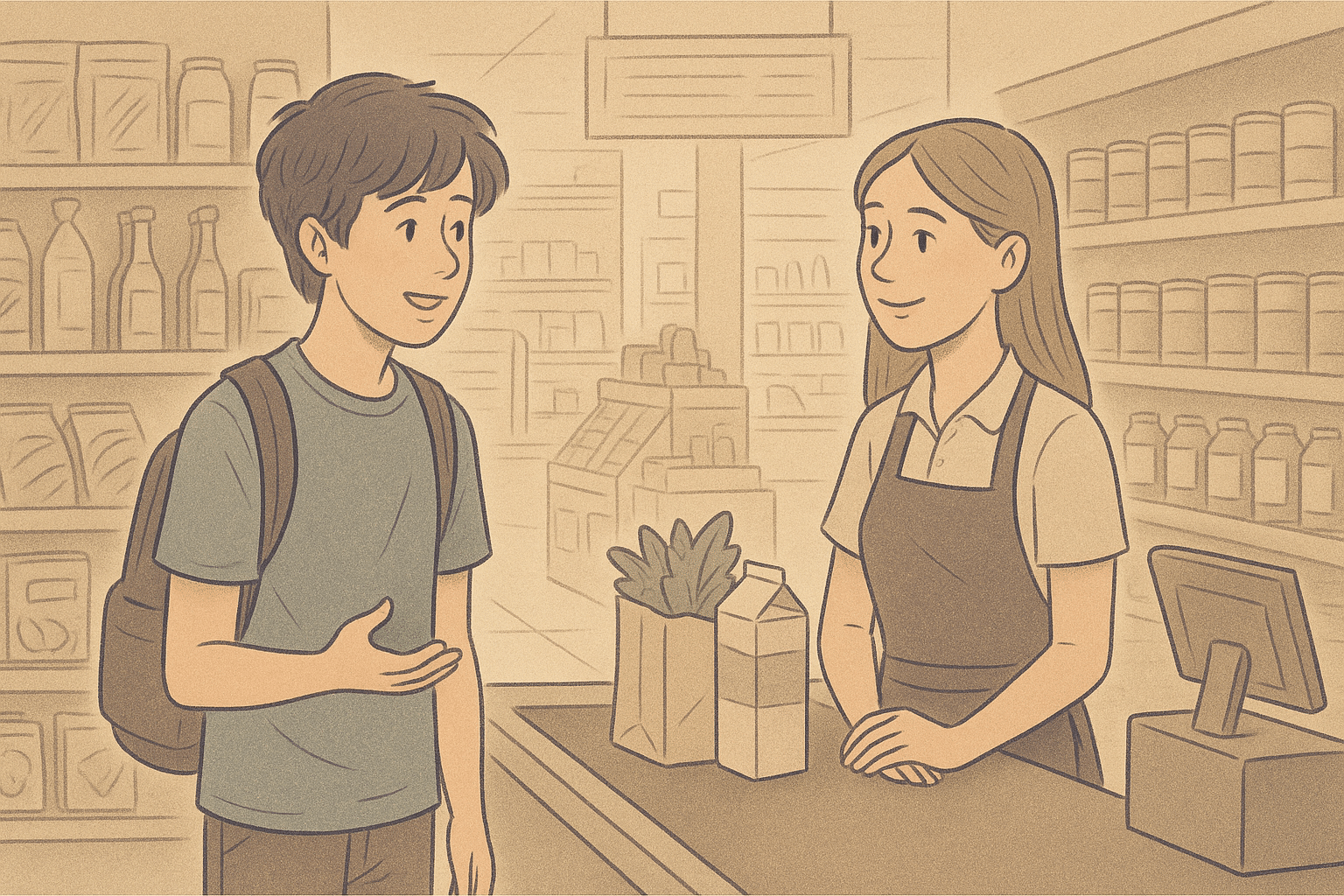
They might start with something moderately challenging, like asking a store clerk a question, before progressing to more difficult situations like initiating a conversation with a peer.
Each exposure is designed to be long enough for anxiety to naturally peak and then begin decreasing, typically 30-45 minutes. This experience teaches them that anxiety doesn’t continue escalating indefinitely and that they can tolerate discomfort without avoiding or escaping the situation.
Social Skills Training
Structured social skills training helps them develop specific conversational skills, assertiveness techniques, and nonverbal communication awareness. At Mission Prep Healthcare, we integrate social skills training into our treatment approach, providing both instruction and opportunities to practice these skills in a supportive environment.
Key social skills we address include conversation starters, active listening, expressing opinions appropriately, and gracefully exiting interactions. Role-playing these skills allows teens to receive feedback and gain confidence before using them in real-world situations.
When To Seek Help
While some anxiety in social situations is normal, symptoms that persist and interfere with daily functioning warrant professional intervention. Remember, seeking help is a sign of strength, not weakness.
With appropriate treatment, most teens begin to experience meaningful improvement within eight to twelve weeks, though complete recovery often takes longer. The timeline for treatment varies based on the severity of anxiety, the presence of co-occurring conditions, the level of avoidance behaviors, and the consistency with which therapeutic techniques are applied.
Overcoming Social Anxiety with Mission Prep
At Mission Prep Healthcare, we specialize in transforming the lives of teens struggling with social anxiety. Our evidence-based treatment approaches have helped thousands of young people reclaim their confidence.
Our comprehensive programs address the whole person, not just the symptoms of social anxiety. We build resilience, develop practical coping strategies, and foster healthy relationships with peers and family members.
The experienced clinicians at our treatment facilities understand the unique challenges teens face. They provide individualized care through outpatient therapy services and intensive residential programs that respect each adolescent’s developmental needs and personal strengths.

We create safe environments where teens can practice new skills, face their fears gradually, and experience genuine success in social situations.
Don’t let social anxiety limit your teen’s potential. The caring professionals at Mission Prep are here to guide your family through this journey with expertise, compassion, and proven results. Contact us today to learn how we can help you build lasting confidence and develop the social skills that will serve you throughout life.
Frequently Asked Questions (FAQ)
How can I tell if my teenager has social anxiety or is just shy?
Shyness is a temperamental trait characterized by initial discomfort in new social situations that typically eases with familiarity. Social anxiety disorder involves persistent, intense fear of social judgment that significantly impairs functioning and doesn’t necessarily diminish with familiarity.
While shy teens might be quiet in new settings but comfortable with friends, teens with social anxiety experience ongoing distress even in familiar social contexts and actively avoid situations where they might be evaluated.
Can social anxiety develop suddenly in teenagers?
While social anxiety typically develops gradually, teens sometimes experience what appears to be sudden onset following a specific triggering event like public embarrassment, bullying, or a major life transition.
More commonly, mild anxiety symptoms have been present for years but become more noticeable during adolescence when social demands and self-consciousness naturally increase.
Is online schooling better for teens with social anxiety?
Online schooling may temporarily reduce anxiety by eliminating immediate social pressures, but it’s typically not recommended as a long-term solution for social anxiety. Avoiding anxiety-provoking situations actually reinforces anxiety and prevents teens from developing necessary coping skills.
However, in severe cases where school refusal is established, a temporary transition to online learning combined with intensive therapy and a structured plan for returning to in-person education may be appropriate.
How long does therapy typically take to help social anxiety?
Most evidence-based treatment protocols for adolescent social anxiety range from 12–20 weekly sessions, with noticeable improvement often beginning around the 6–8 week mark when teens actively engage in the process.
However, the timeline varies considerably based on anxiety severity, motivation, consistent practice of skills between sessions, and family support.
How does Mission Prep help teens with social anxiety?
At Mission Prep Healthcare, we provide comprehensive assessment and evidence-based treatment for teen social anxiety using approaches like CBT, exposure therapy, and social skills training.
Our integrated approach combines professional therapy with practical coping strategies and family education to ensure lasting improvements in social confidence and functioning.


